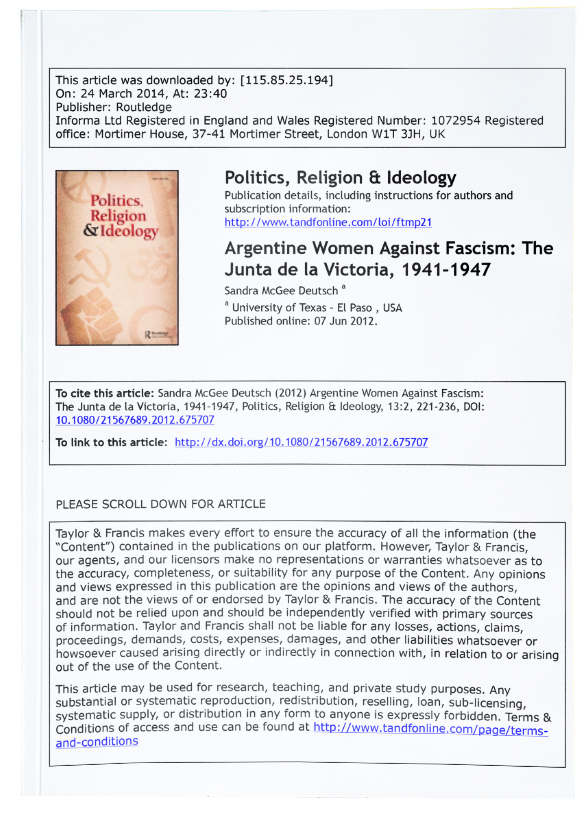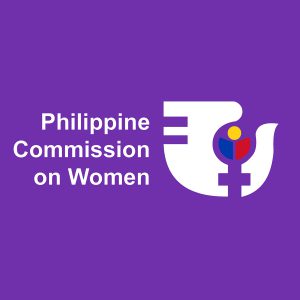
The Junta de la Victoria (1941–1947) was an Argentine anti-fascist women’s group that sent aid to the Allies. With its 45,000 members, the Junta became the largest women’s political group before Juan Peron’s presidency (1946–1955) when women obtained suffrage in 1947. Unlike other women’s anti-fascist groups in Europe and Latin America, the Junta concentrated on modeling and amplifying democratic practices in the face of an increasingly dictatorial government and Axis advances in World War II. Thus it was unique. To a certain degree, the Junta tried to implement a broader view of democracy that went beyond protecting individual rights, free elections, and the rule of law to include men and women of different classes, faiths, ethnicities, and regions in the polity. Aside from helping the Allies, it mobilised a spectrum of women and inserted them into the political arena, bridged differences among them, and fostered their engagement. It broadly disseminated its message in order to bring the masses into an anti-fascist orbit. While the Junta sought to renovate a democracy under siege, its conception of this type of governance had some shortcomings. Nevertheless, the Argentine case demonstrates that different contexts produced different anti-fascisms.
| Asset Type: | Publications |
| Collection: | Foreign Publications |
| Subject: | Anti-facism, Women’s group, Argentina, Junta dela Victoria, |
| Author: | Sandra McGee Deutsch |
| Publisher: | Taylor and Francis Group |
| Publication Date: | June 2012 |

